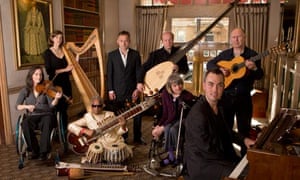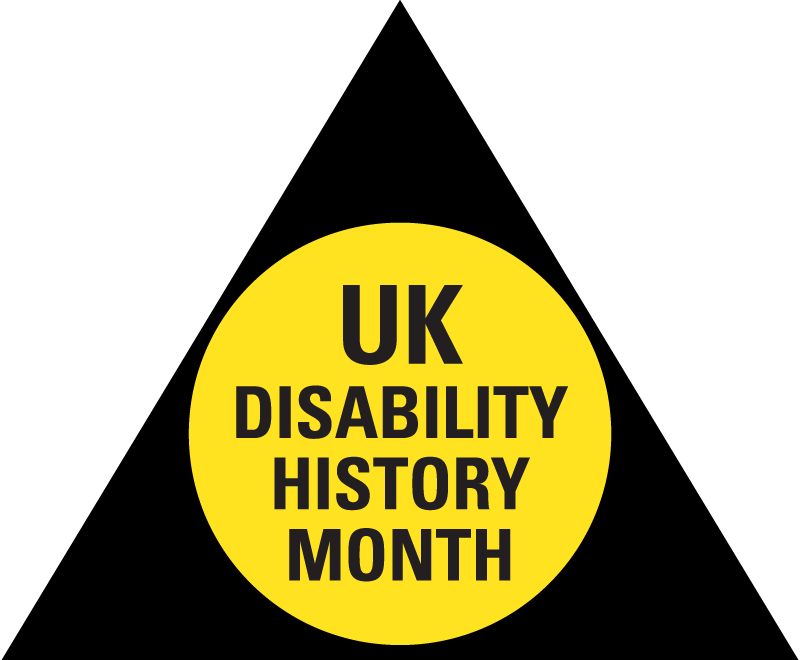One from the heart: Charles Hazlewood’s Paraorchestra
https://www.theguardian.com/music/2012/jun/27/charles-hazlewood-british-paraorchestra

There is, in fact, a Glastonbury festival this summer. Not at Worthy Farm, but nearby in the glorious ruins of Glastonbury Abbey. It’s a family festival featuring music from Tchaikovsky to Tubular Bellsby way of hip-hop, handbells and opera. But of all the acts performing at Orchestra in a Field this weekend, the one closest to my heart is The British Paraorchestra, an ensemble of 18 disabled musicians making their UK debut in this suitably magical setting.
The orchestra’s story is a personal one. I am lucky enough to have four wonderful children, the youngest of whom has cerebral palsy. Being a musician, it came naturally to me to sing with my children when they were small and mess about on the piano, guitar or wooden spoons. Five years ago, around the time my daughter was diagnosed at the age of 18 months, I began to notice how music affected her. Though she often seemed floppy and weak, she would be upright, engaged and energetic when music was being made.
Disability, once invisible to me, was very much on my mind. It is a painful time for any parent to discover their child will never … whatever it is, walk, talk, read, see or hear. In our case, we were told that our daughter would never walk unaided. We grieved for a future that never was. But, gradually, we realised that there is not another version of her that is “better”. Her experience of the world will differ from the able-bodied, but hers is not half a story because she can’t walk without help, or a less happy story for that. I’m not trying to gloss over the challenges and suffering that she will face, but what able-bodied folk forget is that we can’t imagine how she experiences the world, nor can we judge the balance of pain and joy in her lifetime.
With these new eyes, I took a fresh look around my professional world. It suddenly became glaringly odd that there were virtually no disabled musicians in any of the orchestras or groups I played with anywhere in the world. Where was the talent with disability? As soon as I started looking, I encountered amazing musicians of all sorts – and the founder members of the Paraorchestra began to appear. Clarence Adoo, once Courtney Pine’s trumpeter of choice, now paralysed from the neck down but furiously making music with ground-breaking new technology. The extraordinary Lyn Levett, who composes using her iPad, which she operates with her nose. As she says: “I am not a disabled musician, I am a musician with a disability.” Then there’s recorder-player James Risdon, who plays professionally and is also the RNIB’s music officer. One by one, these wonderful musicians began to emerge, and there are now 18 members.
From the off, I wanted to make an orchestra. For me, music only becomes meaningful when you make it together, when you articulate a narrative to an audience. But we are not a conventional orchestra. We don’t have a string or a wind section, or even a conductor (although Clarence sometimes conducts with his eyes). We don’t perform a set repertoire. We’re more like an ensemble of soloists who combine their individual sounds to rework existing pieces or compose or improvise our own. We all come from different musical backgrounds, but what binds us is a fierce musical bravery. Rehearsals start with a theme, a fragment, or a structure that we work around and with our different approaches all add to the mix and the thrilling white heat of inspiration. Listen out for our version of Green–sleeves, which got us a standing ovation at a TEDx event in Brussels last year.
Not everyone has been pleased with the idea. Some feel that a “disabled” orchestra somehow patronises the disabled community. But until the paralympics, no one took disabled athletes seriously. These people deserve to be seen and heard not because they are disabled, but because of their talent.
At Orchestra in a Field they will be performing where they belong – among the brightest and best of British musical talent. My final goal? That one day there will be disabled musicians in orchestras and bands everywhere, and no one will turn a hair.
